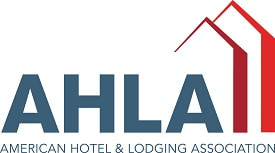Ask the Experts: Employment Law
|
|
Q: With everything that has been happening in the economy these days, what trends do you see concerning possible employment law changes?
A: The COVID-19 pandemic has rapidly increased the speed at which employment laws are changing across the country. Still, not all of these changes relate to the coronavirus. Many of the proposed laws relate to political fights and legal issues that have been circulating in the business community for years. Below, we have highlighted a few of the employment trends that may affect your business and employee relations in the very near future. |
The “Fight for 15” and Limits on Tip Credits Continue
Like many states, Michigan already has increased its minimum wage above the federal level. Currently, the state minimum wage is $9.65 per hour, and it is scheduled to increase every year, reaching $12.05 by January 1, 2030. But the minimum-wage fight is far from over. Lawmakers in both Michigan and Washington D.C. have proposed bills that would rapidly increase state and federal minimum wages to $15 per hour. Given such trends, it is quite possible we will see a large increase in the minimum wage in the coming years.
These potential minimum-wage increases coincide with a battle backed by employee groups to eliminate the use of tip credits. A number of states already have banned the use of tip credits and require employers to pay tipped employees the full minimum wage regardless of the amount of tips they receive. President Biden backs ending the tipped minimum wage and supports bills that would gradually phase out the tip credit. Although no such changes have occurred yet, the movement continues, and it could significantly increase labor costs.
The Push for Paid Family Leave
Michigan enacted the Paid Medical Leave Act in 2019. Since that time, labor groups have been calling for the adoption of paid family leave. The pandemic has increased the calls for employer-provided paid family leave. Currently, there are a number of proposals to provide paid family leave. For example, in April, the President proposed his American Family Plan, which would eventually provide twelve weeks of paid medical and family leave to eligible employees. Paid family leave has significant support across the country and some form of paid leave will likely be passed within the next few years.
The Pitfalls of a Growing Remote Workforce
COVID-19 forced many employers to transition to a remote workforce and limit - and in some instances ban - business travel. These trends likely will never go back to their pre-pandemic levels. This has required the hospitality industry to think creatively to attract more guests, where business travel remains at all-time lows. Moreover, remote work creates real legal challenges for employers. Among other things, employers must adopt policies and practices that accurately track the work hours of remote employees, which can be challenging when no supervisor is around to verify that actual work is being performed during normal work hours. Employers may also need to ensure remote workers are being reimbursed for the business use of personal items such as cellphones, internet services, and other utilities. These issues are often overlooked and contribute to the increase in class action employment litigation.
No More Non-Competes?
There is a growing campaign to limit non-compete and non-solicitation agreements. On July 9, 2021, President Biden issued an Executive Order on Promoting Competition in the American Economy, encouraging the Federal Trade Commission (“FTC”) to promulgate rules that would “curtail the unfair use of non-compete clauses and other clauses or agreements that may unfairly limit worker mobility.” It is unknown what, if any, rules the FTC will propose, but the order is symptomatic of an increasing trend. California, North Dakota, and Oklahoma already prohibit most non-competes, and several states have passed laws limiting their enforcement. Should this trend continue, employers may have a harder time protecting their businesses against unfair competition at the hands of a former employee. As the law now stands in Michigan, however, reasonable non-compete and non-solicitation agreements remain enforceable.
Like many states, Michigan already has increased its minimum wage above the federal level. Currently, the state minimum wage is $9.65 per hour, and it is scheduled to increase every year, reaching $12.05 by January 1, 2030. But the minimum-wage fight is far from over. Lawmakers in both Michigan and Washington D.C. have proposed bills that would rapidly increase state and federal minimum wages to $15 per hour. Given such trends, it is quite possible we will see a large increase in the minimum wage in the coming years.
These potential minimum-wage increases coincide with a battle backed by employee groups to eliminate the use of tip credits. A number of states already have banned the use of tip credits and require employers to pay tipped employees the full minimum wage regardless of the amount of tips they receive. President Biden backs ending the tipped minimum wage and supports bills that would gradually phase out the tip credit. Although no such changes have occurred yet, the movement continues, and it could significantly increase labor costs.
The Push for Paid Family Leave
Michigan enacted the Paid Medical Leave Act in 2019. Since that time, labor groups have been calling for the adoption of paid family leave. The pandemic has increased the calls for employer-provided paid family leave. Currently, there are a number of proposals to provide paid family leave. For example, in April, the President proposed his American Family Plan, which would eventually provide twelve weeks of paid medical and family leave to eligible employees. Paid family leave has significant support across the country and some form of paid leave will likely be passed within the next few years.
The Pitfalls of a Growing Remote Workforce
COVID-19 forced many employers to transition to a remote workforce and limit - and in some instances ban - business travel. These trends likely will never go back to their pre-pandemic levels. This has required the hospitality industry to think creatively to attract more guests, where business travel remains at all-time lows. Moreover, remote work creates real legal challenges for employers. Among other things, employers must adopt policies and practices that accurately track the work hours of remote employees, which can be challenging when no supervisor is around to verify that actual work is being performed during normal work hours. Employers may also need to ensure remote workers are being reimbursed for the business use of personal items such as cellphones, internet services, and other utilities. These issues are often overlooked and contribute to the increase in class action employment litigation.
No More Non-Competes?
There is a growing campaign to limit non-compete and non-solicitation agreements. On July 9, 2021, President Biden issued an Executive Order on Promoting Competition in the American Economy, encouraging the Federal Trade Commission (“FTC”) to promulgate rules that would “curtail the unfair use of non-compete clauses and other clauses or agreements that may unfairly limit worker mobility.” It is unknown what, if any, rules the FTC will propose, but the order is symptomatic of an increasing trend. California, North Dakota, and Oklahoma already prohibit most non-competes, and several states have passed laws limiting their enforcement. Should this trend continue, employers may have a harder time protecting their businesses against unfair competition at the hands of a former employee. As the law now stands in Michigan, however, reasonable non-compete and non-solicitation agreements remain enforceable.
Arbitration Is on the Rise
We continue to see a substantial rise in class action employment claims, especially concerning wage and hour issues. It is believed that a rash of additional lawsuits may be filed as the COVID-19 pandemic begins to wane. We anticipate that employment-based class actions will remain on a steady upward trajectory for the near future. In Epic Sys. Corp. v. Lewis, however, the U.S. Supreme Court upheld the use of class action waivers in arbitration agreements. To protect your company from possible “bet-the-business” class actions, you may want to consider implementing an arbitration agreement that contains a class action waiver. As always, consult with your legal counsel first before distributing any arbitration agreements to employees, as there are a number of requirements that must be met to strengthen enforceability.
We continue to see a substantial rise in class action employment claims, especially concerning wage and hour issues. It is believed that a rash of additional lawsuits may be filed as the COVID-19 pandemic begins to wane. We anticipate that employment-based class actions will remain on a steady upward trajectory for the near future. In Epic Sys. Corp. v. Lewis, however, the U.S. Supreme Court upheld the use of class action waivers in arbitration agreements. To protect your company from possible “bet-the-business” class actions, you may want to consider implementing an arbitration agreement that contains a class action waiver. As always, consult with your legal counsel first before distributing any arbitration agreements to employees, as there are a number of requirements that must be met to strengthen enforceability.
MRLA Members receive 15 minutes of FREE legal consultation per month through the MRLA Legal Center!





